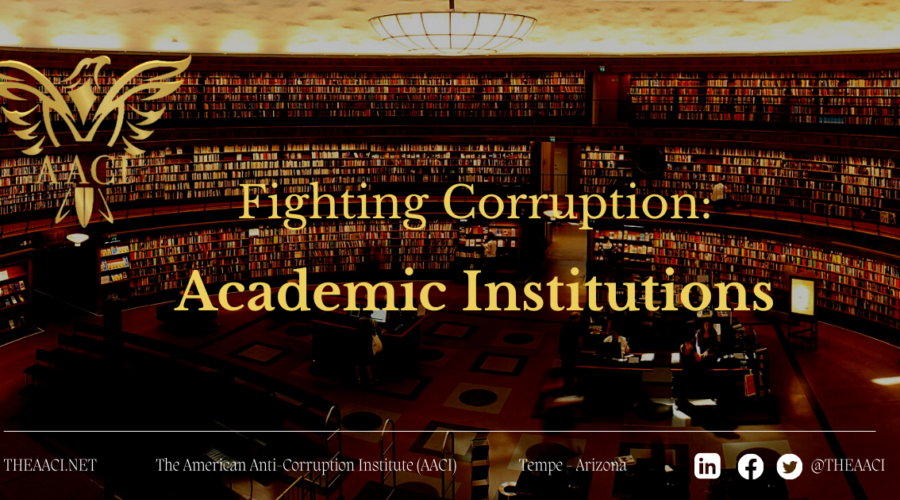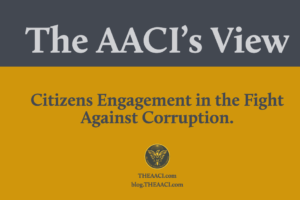September 19, 2022
Technical Staff
The American Anti-Corruption Institute (AACI) defines fighting corruption as follows:
“Fighting corruption is a process effected by those charged with governance, employees, citizens ,and other stakeholders to provide a reasonable assurance that those entrusted with power did not abuse it for a private gain(s).”

As an integral part of the definition, The AACI asserts that fighting corruption is a process that is
1- Holistic,
2- Multidisciplinary,
3- Encompasses all economic sectors,
4- Result-oriented,and
5- Continuous.
It is a comprehensive strategy. Limiting our focus to universities, academic institutions play a critical role in combating corruption in a variety of ways. First and foremost, university officials must devise and implement an effective anti-corruption strategy. Internal control and governance, as well as the rule of law, are essential components of such a strategy. Fraud and corruption must not be tolerated in the process. Second, universities should provide appropriate anti-corruption intelligence to their academics and administration to deter and prevent corruption. They must be capable of carrying it out. Third, universities should involve their students in anti-corruption efforts.
Engaging Students in Fighting Corruption
Regardless of the existence of corruption, students should understand the basics and characteristics of corruption. They should learn about corruption schemes and their damages. They should also learn how to deter and prevent corruption.
Benefits of Engaging Students
An effective student engagement strategy should achieve the following goals:
1. Provide students with adequate anti-corruption intelligence to assist them in identifying corruption.
2. Give them the ability to intelligently question potential fraud and corruption acts, such as money laundering and conflict of interest.
3. Assist them in avoiding being implicated or unknowingly participating in fraud or corruption.
4. Encourage them to become active participants in raising public awareness about anti-corruption efforts.
Corruption is Always a Local Issue
Culture, values, and norms vary from country to country. As a result, academic institutions should be creative in finding the best ways and means to engage their students. There is no single strategy that works everywhere. The Certified Anti-Corruption Fellow (CACF) credential program is provided by the American Anti-Corruption Institute (AACI) to assist colleges in engaging their students. Engaging students is a challenging but vital aspect of battling corruption.
Additional References
Read more, What Should One Know to Fight Corruption? https://blog.theaaci.com/what-should-one-know-to-fight-corruption/











































